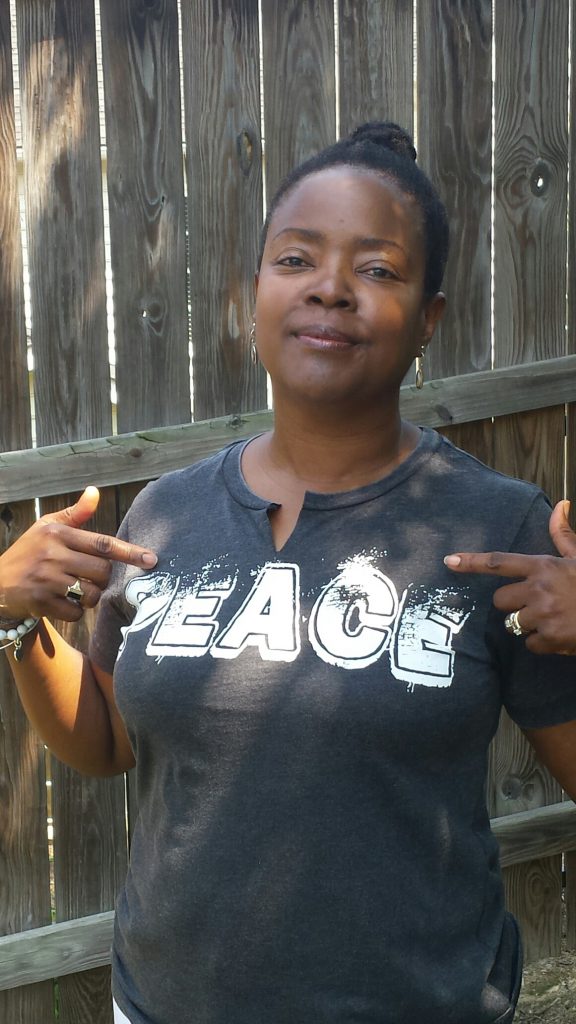Beverly Bunch-Lyons is an associate professor of history at Virginia Tech, National Capital Region. She lives in Northern Virginia, and has been a member since 1995.
Alma maters: BA, East Carolina University, 1985; MA, North Carolina Central University, 1990; PhD, Miami University, 1995
Fields of interest: business/entrepreneurship, African American, women, southern
Describe your career path. What led you to where you are today? I started out as a middle school social studies teacher, a job I loved. I quickly realized that I loved working with young people, was passionate about teaching, but wanted greater flexibility in choosing the courses I taught. I was fortunate to have phenomenal colleagues and supportive administrators at my school. I was given the opportunity to participate in the revision of the statewide middle school social studies curriculum in North Carolina, and encouraged to apply for a National Endowment for the Humanities summer teaching award, which I received.
I began pursuing my master’s degree in education at North Carolina Central University after my first year of teaching. As an elective, I took one incredibly amazing course in African American history, a decision that changed the trajectory of my career. After taking a second history course, I decided to change my major to history, and completed my MA in history.
At the start of my fourth year of teaching middle school, I made the very difficult decision to leave my job and pursue a PhD in history full-time. I made the wise choice to do this at Miami University, where I had the good fortune to work with incredible scholars like Mary Fredrickson, Jack T. Kirby, Maynard Swanson, and Andrew Cayton. My advisor, Mary Fredrickson, deepened my understanding and appreciation for women’s history, while Jack T. Kirby opened my eyes to the world of southern history. I broadened my understanding of African history by working with Professor Swanson, and increased my knowledge of early American history by working with Professor Cayton. I am eternally grateful for their guidance.
What do you like the most about where you live and work? I live and work just a few minutes outside of Washington, DC. The vibrancy of the city and surrounding suburbs, along with the museums, research libraries, restaurants, convenient transportation, and of course the people make this an incredible place to live and work.
What projects are you currently working on? I am currently working on a paper titled “‘Disdainful of Order and Decency’ or ‘Making My Ends Meet the Only Way I Could’: Blacks and the Underground Liquor Economy in North Carolina, 1900–1960.” This paper is for the Hidden Capitalism Conference that will take place at the Hagley Museum in November 2017. This work is part of the manuscript I am working on that focuses on juke joints and underground economies in the South. I am also working on several small projects that focus on traditional businesses in African American communities.
Have your interests evolved since graduation? If so, how? My earlier interests focused on the connections between race, class, and gender, but soon realized that economic issues were often a central part of this dynamic. I began to slowly shift my emphasis to magnify the role that capitalism and economy play in the lives of those I study.
What’s the most fascinating thing you’ve ever found at the archives or while doing research?While conducting research for my manuscript on underground economies I discovered a couple of beautifully written temperance poems and sketches bemoaning the ill effects of alcohol on families.
Is there an article, book, movie, blog etc. that you could recommend to fellow AHA members?I would recommend Traci Parker’s work, “Southern Retail Campaigns and the Struggle for Black Economic Freedom,” in Race and Retail, ed. Mia Bay and Ann Fabian (Rutgers University Press, 2015).
What do you value most about the history discipline? The African symbol Sankofu is a tangible illustration of what I most appreciate about the discipline of history, the notion that the present and future are both informed by the past. I also appreciate the intimacy of history. We are often privy to the details of the personal lives of both the powerful, and powerless. History gives us the ability to provide context to lives, and to fill in gaps of omission.
Why is membership in the AHA important to you? Membership in the AHA gives me access to journals and magazines that keep me informed about the exciting work that colleagues are doing, as well as innovative methodologies and approaches that are being utilized in research and teaching. I trust the AHA to provide thoughtful, well-researched, and timely pieces on the current state of affairs, and the future direction of our discipline.
AHA members are involved in all fields of history, with wide-ranging specializations, interests, and areas of employment. To recognize our talented and eclectic membership, AHA Today features a regular AHA Member Spotlight series.
This post first appeared on AHA Today.
Tags: AHA Today Member Spotlight African American History
Comment
Please read our commenting and letters policy before submitting.







